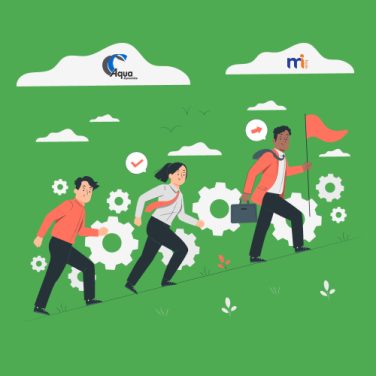In recent years, cloud-based payroll software has gained significant traction among businesses of all sizes, revolutionising how they manage and execute payroll processes.
The shift from traditional methods to cloud solutions is driven by the increasing need for efficiency, cost-effectiveness, and accessibility. As companies embrace digital transformation, cloud payroll systems present an opportunity to streamline HR operations and enhance overall productivity.
Cloud-based payroll software automates complex payroll tasks, reducing the likelihood of errors while ensuring compliance with ever-changing regulations.
By processing payroll on the cloud, businesses enjoy real-time access to data, allowing HR managers and administrators to make informed decisions instantly. This flexibility is particularly beneficial for organisations managing a remote workforce and those with multiple offices across different regions.
The adoption of cloud payroll simplifies the payroll process by streamlining tasks such as calculating wages, tracking employee hours, and handling tax submissions. With features like global payroll management, companies operating on a multinational scale can easily navigate the complexities of differing payroll regulations in various countries.
Furthermore, the integration capabilities of cloud payroll systems with existing accounting and HR software improve the overall efficiency of businesses.
Organisations can seamlessly incorporate payroll data into comprehensive HR analytics, ensuring data-driven HR decisions and enhanced performance management strategies. Future trends in cloud payroll indicate further advancements in AI and analytics, promising even more robust features and possibilities.
These advantages make a compelling case for businesses to transition to cloud payroll solutions and leverage their capacity to unlock workforce productivity while maintaining rigorous data protection standards.
Cost-efficiency and ROI
Transitioning to cloud-based payroll software offers businesses a more cost-efficient approach compared to traditional payroll systems.
Due to reduced IT infrastructure requirements, firms can minimise the costs associated with in-house servers and software maintenance. Consequently, this leads to significant savings while maximising return on investment (ROI).
By automating tedious payroll tasks, human error is minimised, reducing the need for time-consuming corrections and reruns.
Cloud payroll systems also offer businesses scalable solutions that adjust to their varying needs. Whether managing a few employees or thousands, the system flexibly adapts, ensuring that companies only pay for what they need.
This scalability, combined with cost-efficiency, positions cloud-based systems as a strategic choice for growing businesses.
Compliance and accuracy
Ensuring compliance with local and international payroll regulations can be daunting for businesses, especially those operating across borders.
Cloud payroll solutions, such as those offered by MiHCM, are engineered to handle such complexities efficiently. They offer updates for regulatory changes in real-time, ensuring businesses remain compliant with the latest laws. This proactive approach helps mitigate penalties or legal repercussions due to non-compliance.
Moreover, integrating automation enhances accuracy in payroll execution.
By eliminating manual entries, the chance of errors is drastically reduced. Features like global payroll management enable companies to handle multi-currency transactions seamlessly.
This capability is crucial for organisations with a global presence, ensuring accurate payments regardless of location, further emphasising the benefits of cloud payroll.
- Streamlined operations: Enhances day-to-day HR and payroll processes, freeing up time for strategic initiatives.
- Data-driven decisions: With integration capabilities, payroll data can be combined with HR analytics to foster informed decision-making.
- Employee Self-Service: Empowers employees with easy access to payslips and other payroll-related information via secure portals.
The modern payroll system extends beyond conventional functions and offers value-added features that improve overall business efficiency. These systems eliminate repetitive tasks with automation, provide rapid access to comprehensive data sets, and allow easy reporting capabilities for HR managers.
As digitisation continues to evolve, embracing these solutions seems less like an option and more like a necessity for forward-thinking organisations.
Security protocols
In today’s digital landscape, cloud-based payroll software offers cutting-edge security features designed to protect sensitive payroll data from unauthorised access and breaches.
Security in cloud payroll systems is primarily anchored in encryption and multi-factor authentication. These protocols safeguard confidential employee and company data, ensuring peace of mind for businesses looking to transition from traditional payroll methods.
Encryption is a critical aspect of cloud payroll security. It involves converting data into a secure code to prevent unauthorised access. With cloud solutions, data encryption occurs both in transit and at rest, offering a robust layer of protection against cyber threats. This means that even if data is intercepted, it remains unreadable without the correct decryption key.
Another essential security feature is Multi-Factor Authentication (MFA), which adds an extra layer of security beyond just a username and password. In this process, users must provide two or more verification factors to gain access to the cloud payroll system.
This could include something they know (a password), something they have (a smartphone), or something they are (fingerprint or facial recognition).
Cloud payroll solutions also implement advanced firewalls and intrusion detection systems. These protect the system from unauthorised access by monitoring, detecting, and responding to security events.
Regular security audits and updates further ensure that the system’s defences are up to date and resilient against emerging threats.
Data protection and compliance
One of the standout benefits of cloud payroll systems is their ability to help businesses remain compliant with local and international data protection laws.
This is vital as businesses face strict regulations and cloud payroll systems are designed to adhere to these regulations, providing businesses with compliance tools to manage data protection obligations effectively.
Cloud payroll enhances compliance and accuracy by automating updates related to regulatory changes. This proactive approach helps enterprises avoid potential penalties or legal issues stemming from non-compliance.
By regularly updating their security measures and ensuring compliance with data protection laws, cloud payroll solutions offer businesses the assurance needed to manage sensitive information responsibly and legally.
For global enterprises, data residency is often a point of concern. Thankfully, leading cloud payroll providers typically offer data storage options that allow businesses to select where their data is housed. This flexibility supports adherence to specific regional data residency requirements, giving businesses full control over their data management strategies.
- Proactive security measures: Regularly updated to combat new threats and protect sensitive data.
- Compliance ready: Designed to meet the latest regulatory requirements, both locally and globally.
- Multi-layer protection: Combining firewalls, encryption, and authentication for maximum security.
- Flexible data residency: Options for data storage location to meet regional obligations.
As businesses continue to digitise, ensuring the security of their payroll data is critical. By adopting cloud-based payroll software, companies can leverage state-of-the-art security protocols to protect their data and comply with evolving regulations. In doing so, they can confidently embrace the future of payroll management without sacrificing security or compliance.
Traditional vs. modern payroll
The debate between traditional payroll systems and cloud-based solutions often centres around scalability, flexibility, and accessibility. Cloud-based payroll software has emerged as a superior option, particularly for businesses aiming for growth and adaptability.
- Scalability: Traditional systems often struggle with scalability, requiring significant manual adjustments and resources as a business expands. By contrast, cloud payroll systems like those offered by MiHCM adapt effortlessly, allowing businesses to add new employees or locations without disruption.
- Flexibility: The flexibility of cloud payroll software is evident in its ability to integrate various modules and functionalities as needed. This means companies can customise their payroll systems to include features like employee self-service and mobile attendance tracking.
- Accessibility: Accessibility is arguably one of the most significant advantages of cloud payroll solutions. Unlike traditional systems that require physical presence or complex VPN setups, cloud solutions provide instant access to payroll data from any location with internet connectivity, which is essential for managing a remote workforce.
Traditional payroll systems tend to be more rigid and often require dedicated IT infrastructure and personnel to maintain. This not only increases operational costs but also limits flexibility.
On the other hand, cloud payroll solutions operate on a SaaS model, eliminating the need for costly hardware investments and significantly reducing maintenance efforts. Moreover, updates and new features are automatically integrated, ensuring businesses always use the latest technology without additional expense.
Furthermore, cloud payroll emphasises data security and compliance. While traditional systems may rely on outdated security measures, modern cloud solutions incorporate multi-factor authentication and encryption technologies, safeguarding sensitive employee data against breaches.
- Real-time updates: With cloud-based systems, any changes in payroll regulations can be instantly updated, minimising the risk of non-compliance.
- Enhanced support: Cloud providers often offer comprehensive support and resources to help businesses manage their payroll responsibilities more effectively.
- Cost efficiency: The cost predictability associated with subscription-based pricing models means businesses can anticipate expenses more accurately, leading to more strategic financial planning.
In conclusion, while traditional payroll systems may offer familiarity, their limitations in terms of flexibility, scalability, and cost make cloud-based payroll solutions a more compelling choice for modern businesses.
The transition to cloud payroll systems like MiHCM presents a compelling opportunity to enhance operational efficiency and support business growth through innovative features and superior integration capabilities.
Integration process
Integrating cloud-based payroll software with existing HR systems is a strategic move that promises enhanced efficiency and data accuracy for businesses.
The integration process is designed to seamlessly incorporate payroll and HR data, establishing a cohesive environment that streamlines HR operations and payroll management. By integrating with HR systems, organisations can eliminate data silos, ensuring uniformity and ease of access to employee information.
One of the standout features of cloud payroll systems, such as those offered by MiHCM, is efficient payroll management. These systems support automation and provide real-time data synchronisation across departments, leading to improved accuracy and compliance with local regulations.
To successfully integrate cloud payroll with HR systems, businesses may want to consider the following steps:
- Assessment of current systems: Evaluate existing HR and payroll processes to identify integration needs and requirements. Understanding current workflows helps in customising the integration process effectively.
- Selecting the right software: Choose a cloud payroll solution that supports seamless integration with HR and ERP systems already in place. This ensures a smooth transition and minimises disruption.
- Data mapping: Map out data fields between payroll and HR systems to ensure all required employee information is transferred accurately and efficiently. This step is crucial for maintaining data integrity.
- Testing and validation: Conduct tests to validate the integrity and accuracy of the integrated systems. Verification ensures that data flows accurately between platforms, identifying any discrepancies early on.
- Training and support: Provide training and resources to HR personnel and managers on the new integrated system. Assistance from cloud solution providers can aid in a smoother adoption curve.
Through integration, businesses gain a significant competitive edge, enabling them to make well-informed, data-driven HR decisions promptly. The synchronised data environment simplifies handling complex HR and payroll operations, supporting improved accuracy and compliance.
With features such as automated updates and flexible data management, cloud payroll systems enhance operational efficiency, offering robust scalability to meet the needs of growing businesses. As a result, businesses can focus on strategic initiatives and employee engagement, driving overall growth and sustainability.
Emerging technologies
The transformation journey of cloud-based payroll software is set to be driven by emerging technologies, paving the way for advanced efficiency and enhanced features.
Key players in the industry are integrating Artificial Intelligence (AI) and predictive analytics to automate more complex payroll processes, improving accuracy and compliance. One of the standout applications of AI within cloud payroll is its capability to analyse vast amounts of payroll data, predicting trends and providing actionable insights.
AI-powered systems like MiHCM Data & AI allow businesses to make data-driven HR decisions by uncovering hidden patterns in payroll and HR data. These insights enable HR departments to address turnover rates, absenteeism, and performance management effectively, thereby unlocking workforce productivity.
Besides AI, mobile technology is playing a significant role in shaping the future of cloud payroll solutions. With the increasing demand for remote and on-the-go work environments, platforms are integrating mobile capabilities to allow employees and HR managers instant access to payroll information anytime, anywhere.
Features such as Mobile Attendance Tracking and Employee Self-Service portals empower employees with immediate access to payslips and attendance records, boosting transparency and satisfaction.
- AI and predictive analytics: Deliver critical insights by analysing past data to forecast trends.
- Mobile access: Facilitates real-time interactions with payroll systems, enhancing operational flexibility.
- Seamless integration: Future-ready systems offer unparalleled integration with existing HR and ERP modules, ensuring a seamless flow of information.
Future advancements in cloud payroll solutions are expected to incorporate blockchain technology for added security layers and fraud detection. Blockchain could potentially transform payroll by ensuring every transaction is transparent, immutable, and verifiable, offering an unbreakable guarantee of data integrity.
The move towards more personalised payroll solutions is another anticipated trend. As businesses strive to cater to diverse workforce needs, customisable payroll systems are gaining traction.
Companies like MiHCM are leading this innovation by offering custom analytics tailored to specific business needs, delivering more precise insights and targeted results.
Overall, the future of cloud payroll solutions lies in embracing these technological advancements, ensuring businesses not only meet current demands but are also ready to adapt to the evolving business landscape.
The trend is clear: As these technologies mature, they will radically empower businesses seeking cloud payroll systems for future-ready operations.
The future of payroll
Cloud based payroll software has significantly evolved as a cornerstone solution for modern businesses, offering unparalleled efficiency, flexibility, and security.
As detailed here, the transition to cloud payroll solutions enhances HR operations, supports global payroll management, and augments security protocols, which are critical for compliance and data protection. Companies embracing these innovations can expect improved performance management and a more robust integration with existing HR systems.
The future of payroll lies in technologies like AI and mobile capabilities, promising further advancements in efficiency and data-driven decision-making. For businesses aiming to streamline operations and drive growth, migrating to cloud payroll solutions is not just a step forward; it’s a strategic move for sustained success.
Whether managing a remote workforce or navigating complex global compliance, these systems provide a flexible, scalable, and highly effective framework for modern payroll needs.
As insights indicate, embracing cloud-based systems allows companies to unlock numerous benefits, including cost-efficiency, enhanced accuracy, and improved employee satisfaction. Begin your journey today with a solution that scales with your business needs and keeps you ahead in the competitive landscape.



